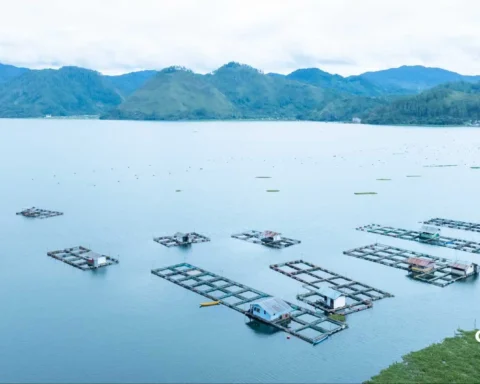A few years ago, a European couple arrived in Mauritius with dreams of a beachfront villa, drawn in by the island’s promise of sun, tranquility, and investor-friendly laws. Their journey was smooth—papers signed, taxes paid, a new life started in paradise. But in 2025, the landscape changed overnight. Imagine their surprise when friends planning to follow in their footsteps found the process far more complex and costly. Rising registration duties, vanishing tax holidays, and tighter currency controls have redefined what it means to buy property in this tropical haven.
The golden age of straightforward real estate investment for foreigners has ended, replaced by a maze of new rules and heightened compliance. Today, Mauritius demands more from its overseas buyers and developers: greater transparency, sustainability, and financial discipline. For those entering the market now, the dream of island living is still alive—but it comes with a new set of challenges and expectations.
These reforms aim to enhance regulatory transparency, streamline foreign ownership, and promote sustainable development, albeit at considerable cost and complexity for market stakeholders. In this exploratory piece, we decode the nuances for better decision-making.
Table of Contents
Significant Legislative Changes Affecting Foreign Buyers
The Budget 2025–2026 marks a clear turning point for foreign buyers’ participation in Mauritian real estate. Registration costs have jumped significantly, doubling duties for foreign buyers from 5% to 10%. This applies to properties purchased under various government-endorsed schemes, including the Integrated Resort Scheme (IRS), Real Estate Scheme (RES), Property Development Scheme (PDS), Smart City Scheme (SCS), Invest Hotel Scheme (IHS), and Ground + 2 initiatives. The escalation is not limited to buyers; developers are now taxed 10% on residential units sold under these regulated programs.
Distribution of EDB-approved apartment schemes as of end-2023. Note: Does not reflect post-2025 regulatory changes or restricted zones under State Land and Pas Géométriques.
Moreover, the Land Transfer Tax on resale registrations will now be the greater of either 10% of the sale price or a substantial 30% of the capital gain. This newly imposed developer tax imposes a direct financial burden on businesses, potentially squeezing profit margins, especially for those whose clientele includes foreign investors.
Overview of 2023 and Changes in 2025
This section highlights the shift in Mauritius’ real estate regulations for foreign buyers between 2023 and 2025. It introduces the theme of evolving property access, compliance, and scheme eligibility. The visual juxtaposes a home and cityscape with regulatory icons, signaling a transition from flexibility to oversight.
What Foreign Buyers could Buy in 2023
The image outlines the broad property access foreign buyers enjoyed in 2023. It includes eligibility for IRS, RES, PDS, SCS, and IHS schemes; Ground+2 apartments; and off-scheme purchases over USD 500,000. Lower registration duties and flexible repatriation rules made Mauritius an attractive investment hub. The visual emphasizes openness and opportunity.
What’s No Longer Allowed in 2025
The image throws light on the restrictions introduced in 2025, including bans on off-scheme purchases and apartment sales in State Land or Pas Géométriques. It also notes the removal of tax incentives and Smart City duty waivers. The visual uses prohibition symbols to underscore the regulatory tightening and reduced flexibility for foreign buyers.
What’s Still Allowed in 2025
Despite new restrictions, this image reassures buyers by listing approved schemes still accessible to foreign buyers: IRS, RES, PDS, SCS, IHS, and Ground+2 apartments. It emphasizes the need for sustainability compliance. The emphasis is on sustainable housing and reflecting the structured, green-forward investment landscape.
Payment & Compliance
The image details new financial and legal obligations for foreign buyers. It covers the requirement to pay 85% in Mauritian Rupees, AML/CFT compliance, written contracts, and repatriation conditions. The new system reinforces scrutiny and due diligence in real estate registrations.
Regional Impact
This image maps the geographic distribution of EDB-approved projects, showing a concentration in the North and West Coast. This helps buyers visualize opportunity zones. There are 183 projects (103 completed, 80 ongoing), and it clarifies that EDB does not track G+2 apartments.
All statistics refer to projects under the IRS, RES, PDS, SCS, and Ground+2 schemes, which remain available to foreign buyers after the 2025 reform; the total supply from these EDB-approved residential projects exceeds 7,800 units, with roughly 5,396 sold between 2005 and 2023, while about 2,400 units as of 2024 are either vacant or still under construction—a pattern that highlights sustained foreign demand and ongoing market expansion, now subject to heightened regulatory oversight and compliance requirements.
In 2023, Mauritius recorded the sale of 646 residential units—a 21.43% increase year-on-year—with properties available to foreign buyers averaging MUR 30.6 million (about USD 645,000) in 2024, representing a 15.4% annual rise; moreover, the residential property price index surged by 22% over the same period, underscoring robust sustained demand in the market.
Foreign direct investment (FDI) in Mauritian real estate reached approximately Rs 24 billion (USD 530 million) in 2024, representing a 13% increase from the previous year. Real estate accounted for nearly 70% of all FDI into Mauritius, with France and South Africa as the main investor sources, together contributing 42% of total FDI. South African investments grew by 22.6% year-on-year, emphasizing Mauritius’ appeal for luxury second homes and retirement properties.
Stricter Restrictions for Foreign Buyers
Another significant change concerns the acquisition of property by foreign buyers. The government has now prohibited foreign buyers from buying or disposing of apartment units in certain buildings located on State Land or Pas Géométriques. Furthermore, the previous provision, which allowed foreign buyers with residence permits to purchase property outside regulated schemes for USD 500,000 or more (as of December 2023), has been discontinued. As a result, non-residents are now confined strictly to government-approved schemes (IRS, RES, PDS, SCS), eliminating flexibility for off-scheme purchases and narrowing the pool of available properties for foreign buyers.
| Area of Interest | Official Source | Notes |
| Approved Schemes (IRS, RES, PDS, SCS) | EDB Mauritius; MCCI | Regulatory details, no map, but schemes are government-endorsed zones |
| Restricted Zones (State Land / Pas Géométriques) | Forestry Service; Pas Géométriques Act | Legal definitions/prohibitions, coastal reserved areas |
| Mapping Data (base map, GIS) | MHLTCP (Survey Dept); Wikimedia Commons | For creating your own visual map overlays |
Currency and Payment Reforms
The Finance Act and accompanying immigration amendments of December 2024 further regulate how property registrations are to be funded. Buyers under IRS, RES, IHS, PDS, and SCS schemes must pay 85% of the property’s purchase price in Mauritian rupees, with only 15% permissible in foreign currency (or rupees). Notaries are tasked with ensuring that this payment structure is accurately documented in deeds.
For property priced over USD 750,000, the first USD 750,000 must be paid in rupees, while any remaining balance may be funded through local loans, with payments made in foreign currency. These measures are likely to reduce foreign exchange risk, strengthen the local currency, and increase transparency in monetary flows. Still, they add another layer of complexity and potential expense for overseas buyers accustomed to different registration frameworks.

Changes to the Smart City Scheme and Incentives
Historically, Mauritius’ Smart City Scheme was among the most attractive options for both domestic and foreign investors, thanks to robust incentives with VAT exemptions, eight-year corporate tax holidays, and duty waivers. As of June 5, 2025, these fiscal perks are withdrawn for new project registrations. Projects that already have valid permits and are actively under construction may retain some benefits, but the landscape for new entrants has shifted. The focus is now on mandatory sustainability standards, reflecting efforts to align urban developments with environmental and social benchmarks.
The termination of incentives fundamentally transforms the value proposition of Smart City investments, making them less attractive to global buyers seeking optimized returns and low barriers to entry. For real estate companies, this change erodes competitive advantage and could reduce the pipeline of premium projects targeting foreign capital.
Regulatory Oversight and Compliance
A wave of regulatory advancements is also underway, spearheaded by the Real Estate Agent Authority Act (2020), although full implementation is still pending. The act is poised to establish a new regulatory body charged with overseeing agents, developers, and promoters. Mandates include:
- Compulsory registration with the Real Estate Agent Authority (REAA)
- Written contracts with clear fee structuring and terms for all agency work
- Fees set as a prescribed percentage of registration value
- Rigorous compliance with anti–money laundering and counter-financing of terrorism (AML/CFT) rules
Agents will be required to maintain records for seven years, undertake risk-based customer due diligence, and proactively report suspicious registrations to the Financial Intelligence Unit (FIU). Failure to comply could lead to steep fines or even imprisonment. This push for enhanced transparency and accountability aligns Mauritian practices with global best standards but will impose greater operational overheads—particularly for small- and medium-sized agencies.
Implications for Real Estate Companies
These reforms will have a profound impact on market dynamics. Primarily, they are expected to squeeze developer margins due to higher registration costs and taxes, which could result in reduced profit or increased property prices. The withdrawal of Smart City incentives removes a key marketing tool, blunting the allure for prospective foreign investors. Restrictions on off-scheme purchases limit demand and weaken the market, potentially leading to slower sales cycles and fewer new projects.
Meanwhile, stringent regulatory and compliance demands will require agencies to strengthen internal systems, documentation, and training—raising costs and administrative burdens. While the intention is to clean up and protect the sector, there is little doubt that the reforms will challenge the agility of smaller players and may discourage speculative or risky investment behaviors.
Key Takeaways and Resources for Foreign Buyers
- No more USD 500k off-scheme villas
- Plan for 10% duties + rupee payments
- Stick to government-approved schemes
- Work only with REAA-registered agents
Resources
| What You Need | Who to Contact | Useful Links |
| Approved Schemes (IRS, RES, PDS, SCS) | EDB Mauritius | View Schemes |
| Restricted Zones (State Land / Pas Géométriques) | Forestry Service | Check Restrictions – Pas Géométriques Act (PDF) |
| Legal & Compliance Rules | Housing Ministry / REAA | Learn the Rules – REAA Act 2020 |
| Investment Advice & Support | MCCI, Licensed Agents | MCCI Property Info |
Starting July 2026, registration fees for foreign buyers purchasing residential properties under government-approved schemes (IRS, RES, PDS, SCS, IHS, and Ground+2 programs) will increase from 5% to 10%, effectively doubling the transaction cost. This hike is expected to enhance government revenue in the short term but may reduce transaction volumes due to the higher entry cost. Buyers currently benefit from a “window of opportunity” before these rates become mandatory. Additionally, capital gains tax on resale remains progressive, with rates up to 15%, while new annual taxes also apply to non-residential property holdings, increasing the overall tax burden for foreign investors.
Looking Ahead
For foreign investors and developers, the Mauritian real estate market now resembles a dynamic chessboard—one where every move demands new calculation and strategy. The spirit of opportunity hasn’t vanished, but the rules have evolved, fostering an environment where diligence, adaptation, and sustainability are not just preferences but necessities. At cocktail parties on sunlit verandas, the old tales of easy acquisitions give way to thoughtful discussions about taxes, compliance, and regulations.
For those ready to embrace greater accountability and longer-term vision, Mauritius still offers its unique blend of natural beauty and investment promise. The dream remains vivid, but it now calls for patience, planning, and a willingness to navigate complexity.
As the waves break on the island’s shores, Mauritius stands as a reminder that paradise itself is not immune to reinvention—especially when the stakes involve protecting its future, its land, and its allure for generations to come.

FAQs
Can I get residency by buying property in Mauritius?
No. Property purchase alone no longer guarantees residency. Residency permits require a separate application via EDB, often tied to minimum investment, employment, or retirement schemes.
Are there financing options for foreign buyers?
Yes. Local banks may finance part of the purchase, but restrictions apply—usually only after the first USD 750,000 is paid in Mauritian Rupees. Terms vary, so consult lenders early.
What happens if I sell my property later?
On resale, you’ll pay Land Transfer Tax: 10% of the sale price or 30% of capital gain, whichever is higher. Plan an exit strategy with this cost in mind.
Can I rent out property I purchase?
Yes, but subject to scheme rules and tax obligations. Income from rentals is taxable in Mauritius and must comply with local AML/CFT reporting standards.
Do I need to use a licensed real estate agent?
Strongly recommended. REAA registration ensures agents comply with contracts, fee structures, and anti–money laundering rules. Unlicensed transactions expose buyers to risk and may not be recognized legally.









